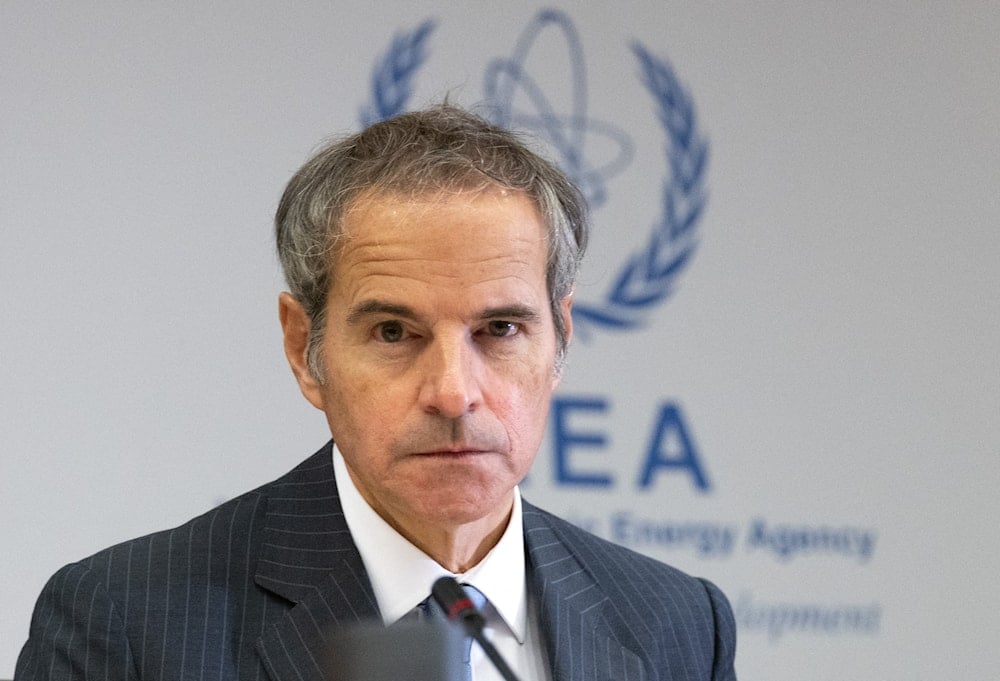Iran's enriched uranium may have survived US, Israeli strikes: Grossi
IAEA Director Rafael Grossi suggests Iran may have protected its enriched uranium amid US and Israeli strikes.
-

Director General of the International Atomic Energy Agency (IAEA) Rafael Grossi attends an extraordinary IAEA Board of Governors meeting at the agency's headquarters in Vienna, Austria, on June 23, 2025 (AFP)
There is a possibility that a significant portion of Iran's highly enriched uranium may have survived recent US and Israeli military strikes, according to Rafael Grossi, head of the International Atomic Energy Agency (IAEA).
Grossi indicated on Wednesday that Tehran may have taken precautionary steps to relocate nuclear materials soon after the initial attacks.
Iran's nuclear material possibly relocated after initial attacks
He noted that Tehran had notified the IAEA on June 13, the first day of the Israeli aggression on Iran, that it would implement "special measures" to protect its nuclear materials and equipment.
"They did not get into details as to what that meant but clearly that was the implicit meaning of that, so we can imagine that this material is there," he said during a press conference alongside Austrian government officials.
Read more: IAEA chief urges Iran to disclose uranium transfers after US strike
IAEA seeks immediate access to nuclear sites
To verify the condition and location of Iran's enriched uranium, Grossi emphasized the need to send inspectors back into the country.
“So for that, to confirm, for the whole situation, evaluation, we need to return (IAEA inspectors to Iran’s nuclear facilities),” he said.
Grossi stressed that this remains his "number 1 priority" and outlined the goal of regaining access to Iranian facilities, including the three sites where uranium enrichment was taking place before the aggression.
Read more: US strikes deliberately avoided Iran’s Isfahan reactors: Bloomberg
Conflicting claims on Fordow damage and nuclear progress
US President Donald Trump claimed that “collected intelligence” following the strikes indicated that Iran’s nuclear sites had been “obliterated”.
However, this assertion contrasts with a leaked US intelligence report suggesting that Iran’s nuclear program had only been delayed by “a few months.”
Regarding the Fordow facility, Grossi stated, "No one, including the IAEA, is in a position to have fully assessed the underground damage at Fordow," though he expects the damage to be "very significant".
Read more: Tehran halts IAEA access over silence on US-Israeli aggression

 2 Min Read
2 Min Read








